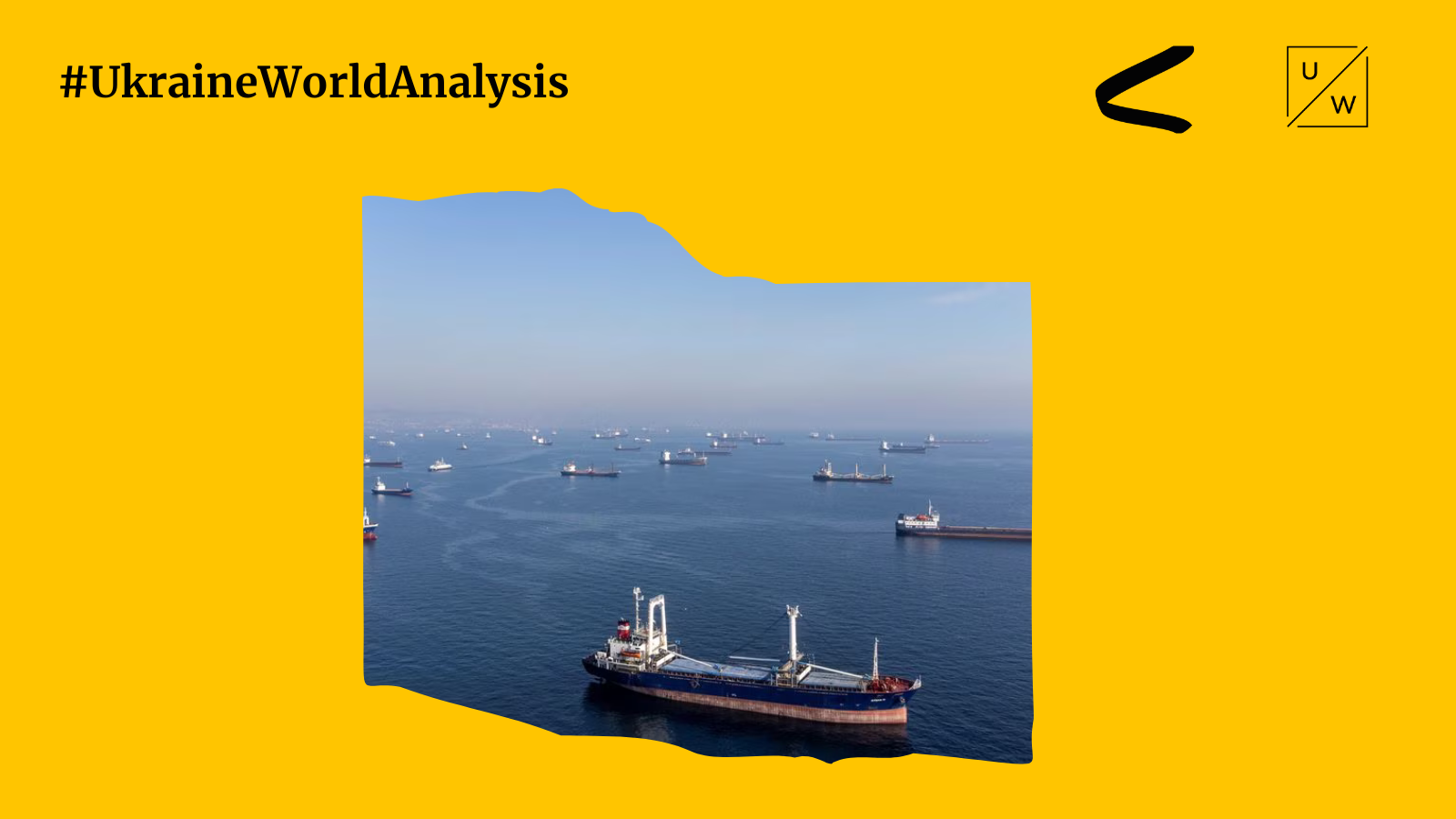
Key points – in our brief, #UkraineWorldAnalysis:
We exported 58 million tonnes of grains and oilseeds during the last grain season, which ended on June 30. 29 million tonnes of it were exported through the Black Sea Grain corridor.
Today, we have already developed alternative routes and can meet our export potential without relying on the Grain Deal of the Black Sea ports. We are achieving this by using the Danube ports, railways, and road transport through the western borders.
Therefore, the disruption to the Grain Deal would not be catastrophic, seeing as Ukraine has prepared for it. If we are successful in exporting our grain now, global prices will see a slight fall.
Currently, developed countries may anticipate food inflation, i.e. a rise in food prices, while developing countries may face problems purchasing grain. That is, there is a high risk of food shortages.
Ukraine is making every effort to ensure its maximum export potential, without the Grain Deal, is reached so that global food security is not jeopardized.This is a symptomatic example of how Russia weaponizes food. Although the Grain Deal remains the cheapest way to export, we hope that new terms can be reached as the old ones are no longer effective.
The Russians at the Joint Coordination Centre are delaying vessel inspections as much as possible, reducing the number of inspection staff to stall for a certain amount of time, and so on.
Over the past three months, the level of inspections, i.e. the number of vessels passing through the Bosphorus, has dropped to 0.8-0.9 per day.
These are small numbers. For example, when Russia withdrew from the Grain Deal for a few days in November, there were approximately 25-30 ships inspected per day.
We seek transparent conditions: if Ukrainian vessels sailing to Ukrainian ports are inspected, the same should be done for vessels sailing to Russian ports, Mykolaiv should be brought into the Deal, and inspections in Istanbul should either be reduced or removed, or they should be done at random - for example, every tenth ship should be inspected.
Ukrainian farmers have lost more than $1 billion because of surcharges - delays and vessel downtime alone, which cost $30 per tonne.
This is a lot of money. Therefore, if we want the agreement back up and running, we need to change the game’s rules.
Even before the Grain Agreement was signed last year, we keep recalling that the Black Sea is not a private lake belonging to Russia, and so, Russia should not therefore impose its rules to the rest of the world. The jurisdiction of international maritime law, namely free navigation, should be respected.
We have seen instances where UN and NATO forces have entered a problematic region and provided security. For example, as was the case with the NATO nations counter piracy mission in the Gulf of Aden. Such cases have occurred throughout all of history, all we need is the political will.
A year ago, a global famine without the Grain deal seemed plausible, but now we are working on alternative transportation routes to provide grain to the world. We have recently discussed with the European Commission the possibility of reimbursing the logistics costs of transporting Ukrainian grain to European ports in Germany, Italy, Croatia, and others.
Thereby, we can make grain more affordable for the rest of the world. At the same time, our farmers will be able to at least match the cost price of grain.
For example, Croatia has recently offered to transport grain across the Adriatic Sea, which is why we are seeking cost compensation. The essence of this mechanism is that the European Commission will cover the costs of European carriers transporting our grain, which will encourage ports that are not heavily involved in transportation processes.
